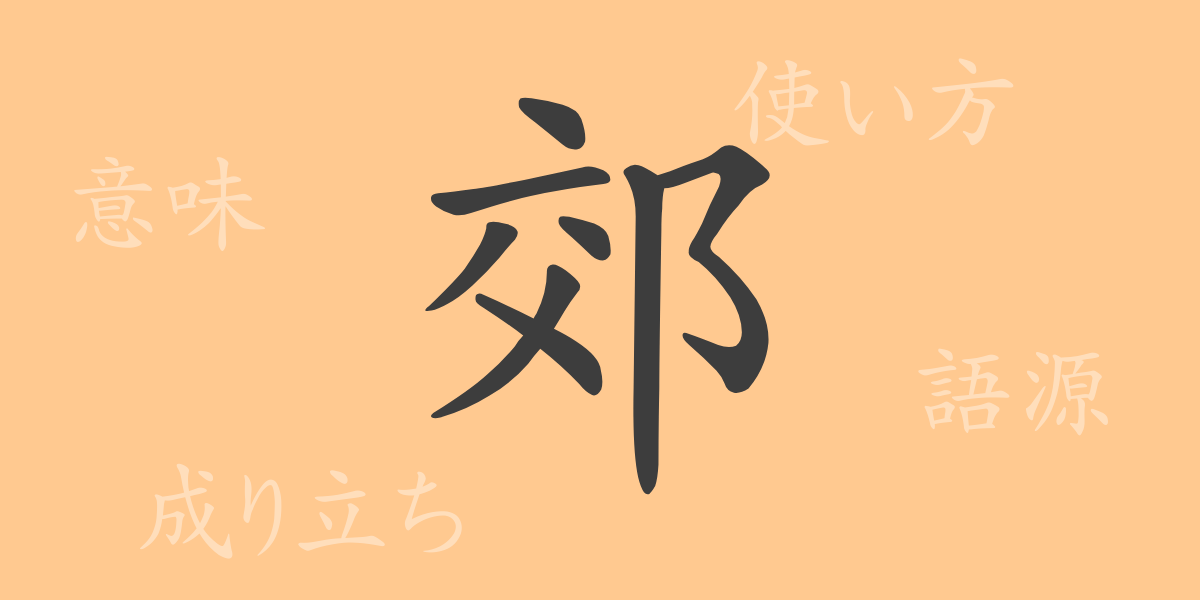Kanji rooted in Japanese culture hold meanings that go beyond mere characters. “郊(こう)” is one such kanji, uniquely representing the boundary where nature and human life intersect. This article delves into the origins and modern usage of “郊(こう)”, unraveling its allure.
Origin of 郊(こう)
To explore the origin of the kanji “郊(こう)”, we need to trace back to ancient China. Originally, “郊(こう)” referred to the areas outside a city, particularly the rural lands beyond the city walls. Its etymology is linked to the “郊外祭祀(こうがいさいし)” ritual in ancient Chinese urban planning, a ceremony conducted outside the city to show reverence and gratitude to the gods of heaven and earth. From this background, “郊(こう)” came to signify places where nature and human activities converge.
Meaning and Usage of 郊(こう)
In modern Japanese, “郊(こう)” is often used in the form “郊外(こうがい)”, referring to suburban areas, residential zones, or natural regions outside major cities. Additionally, in literary works and poetry, “郊(こう)” is used to depict the beauty and tranquility of nature, evoking a sense of calm away from the bustling city life.
Readings, Stroke Count, and Radical of 郊(こう)
The kanji “郊(こう)” has specific readings and structural elements.
- Reading: On-yomi (Chinese reading) is “コウ(こう)”; there is no kun-yomi (Japanese reading).
- Stroke Count: 9 strokes
- Radical: 邑(むらがまえ, muragame)
Idioms, Phrases, and Proverbs Using 郊(こう)
There are several idioms, phrases, and proverbs that include “郊(こう)”. Here are some examples:
- 郊外(こうがい): Refers to suburban areas, residential zones, or natural regions outside urban areas.
- 郊遊(こうゆう): Going out to the suburbs or countryside for leisure activities and enjoying nature.
- 郊区(こうく): Administrative districts around major cities.
These terms are frequently used in modern life and reflect Japan’s culture of valuing nature and leisure.
Conclusion on 郊(こう)
The kanji “郊(こう)” symbolizes the relationship between cities and nature through its historical background and modern usage. By tracing its evolution from ancient origins to contemporary applications, we gain insights into the Japanese perspective on nature and urban living. The expressions using “郊(こう)” convey a longing for the tranquility and beauty of the suburbs and countryside. Understanding this kanji opens a door to appreciating the richness of Japanese culture and language.

























